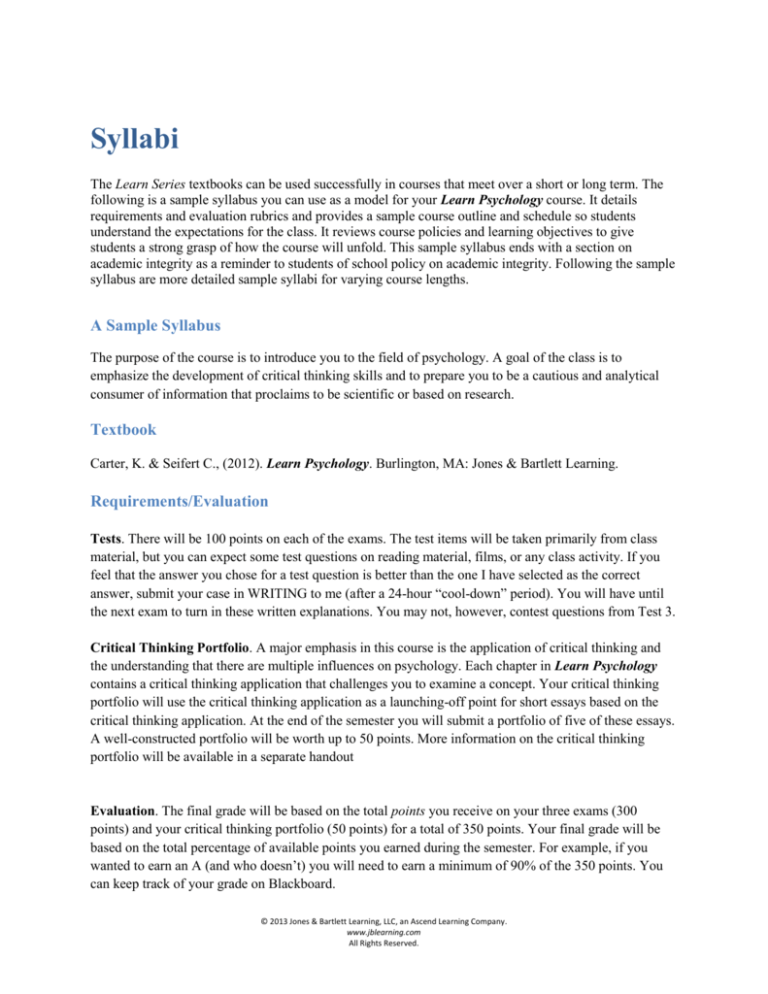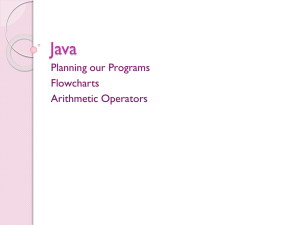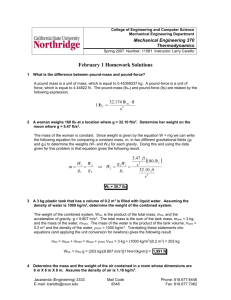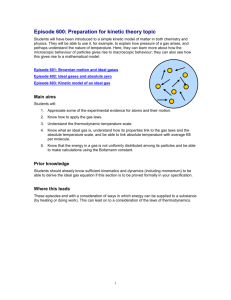
Syllabi
The Learn Series textbooks can be used successfully in courses that meet over a short or long term. The
following is a sample syllabus you can use as a model for your Learn Psychology course. It details
requirements and evaluation rubrics and provides a sample course outline and schedule so students
understand the expectations for the class. It reviews course policies and learning objectives to give
students a strong grasp of how the course will unfold. This sample syllabus ends with a section on
academic integrity as a reminder to students of school policy on academic integrity. Following the sample
syllabus are more detailed sample syllabi for varying course lengths.
A Sample Syllabus
The purpose of the course is to introduce you to the field of psychology. A goal of the class is to
emphasize the development of critical thinking skills and to prepare you to be a cautious and analytical
consumer of information that proclaims to be scientific or based on research.
Textbook
Carter, K. & Seifert C., (2012). Learn Psychology. Burlington, MA: Jones & Bartlett Learning.
Requirements/Evaluation
Tests. There will be 100 points on each of the exams. The test items will be taken primarily from class
material, but you can expect some test questions on reading material, films, or any class activity. If you
feel that the answer you chose for a test question is better than the one I have selected as the correct
answer, submit your case in WRITING to me (after a 24-hour “cool-down” period). You will have until
the next exam to turn in these written explanations. You may not, however, contest questions from Test 3.
Critical Thinking Portfolio. A major emphasis in this course is the application of critical thinking and
the understanding that there are multiple influences on psychology. Each chapter in Learn Psychology
contains a critical thinking application that challenges you to examine a concept. Your critical thinking
portfolio will use the critical thinking application as a launching-off point for short essays based on the
critical thinking application. At the end of the semester you will submit a portfolio of five of these essays.
A well-constructed portfolio will be worth up to 50 points. More information on the critical thinking
portfolio will be available in a separate handout
Evaluation. The final grade will be based on the total points you receive on your three exams (300
points) and your critical thinking portfolio (50 points) for a total of 350 points. Your final grade will be
based on the total percentage of available points you earned during the semester. For example, if you
wanted to earn an A (and who doesn’t) you will need to earn a minimum of 90% of the 350 points. You
can keep track of your grade on Blackboard.
© 2013 Jones & Bartlett Learning, LLC, an Ascend Learning Company.
www.jblearning.com
All Rights Reserved.
Learning Objectives
In accordance with the National Guidelines and Suggested Learning Outcomes for the Undergraduate
Psychology Major (APA 2001) this course is designed to help develop and improve your critical thinking
skills. You should leave this course with cognitive tools that can provide you with specific strategies for
inquiry and well reasoned thought.
Course Objectives (What you will learn if you successfully complete this course.)
Be familiar with the major concepts, theoretical perspectives, empirical findings, and historical
trends in psychology.
Understand and apply basic research methods in psychology, including research design, data
analysis, and interpretation.
Respect and use critical and creative thinking, skeptical inquiry, and when possible, the scientific
approach to solve problems related to behavior and mental processes.
Understand and apply psychological principles to personal, social, and organizational issues.
Have the ability to weigh evidence, tolerate ambiguity, act ethically, and reflect other values that
are the underpinnings of psychology as a discipline.
Student Learning Outcomes (What you will be able to do you successfully complete this course.)
Describe the nature of psychology as a discipline.
o Explain why psychology is a science.
o Compare and contrast the assumptions and methods of psychology with those of other
disciplines.
Use the concepts, language, and major theories of the discipline to account for psychological
phenomena.
o Describe behavior and mental processes empirically, including operational definitions.
o Identify antecedents and consequences of behavior and mental processes.
o Use theories to explain and predict behavior and mental processes.
o Integrate theoretical perspectives to produce comprehensive and multi-faceted
explanations.
Explain major perspectives of psychology (e.g., behavioral, biological, cognitive, evolutionary,
humanistic, psychodynamic, and socio-cultural).
Compare and contrast major perspectives.
Describe advantages and limitations of major theoretical perspectives.
Describe the basic characteristics of the science of psychology.
Explain different research methods used by psychologists.
Describe how various research designs address different types of questions and hypotheses.
Articulate strengths and limitations of various research designs.
Evaluate the appropriateness of conclusions derived from psychological research.
Interpret basic statistical conclusions.
Design basic studies to address psychological questions using appropriate research methods.
Locate and use relevant databases, research, and theory to plan, conduct, and interpret results of
research studies.
Formulate testable research hypotheses, based on operational definitions of variables.
Use critical thinking effectively.
Evaluate the quality of information, including differentiating empirical evidence from speculation
and the probable from the improbable.
Recognize and defend against common fallacies in thinking.
© 2013 Jones & Bartlett Learning, LLC, an Ascend Learning Company.
www.jblearning.com
All Rights Reserved.
Evaluate popular media reports of psychological research.
Demonstrate an attitude of critical thinking that includes persistence, open-mindedness, tolerance
for ambiguity and intellectual engagement.
Make linkages or connections between diverse facts, theories, and observations.
Describe major applied areas of psychology (e.g., clinical, counseling, industrial/organizational,
school, health).
Identify appropriate applications of psychology in solving problems, such as
o the pursuit and effect of healthy lifestyles.
o origin and treatment of abnormal behavior.
o psychological tests and measurements.
Apply psychological concepts, theories, and research findings as these relate to everyday life.
Seek and evaluate scientific evidence for psychological claims.
Tolerate ambiguity and realize that psychological explanations will often be complex and
tentative.
Understand the limitations of their psychological knowledge and skills.
© 2013 Jones & Bartlett Learning, LLC, an Ascend Learning Company.
www.jblearning.com
All Rights Reserved.
Course Outline and Schedule (15 week)
Week Assigned Readings from Learn Psychology Assessments
GameScape
Episode
(please read before class)
1
1: Psychology: An Overview
Episode 1:
Scientific
Inquiry
2: A Scientific Approach to Psychology
2
3: Neuroscience: The Biology of Behavior
3
4: Sensation and Perception
4
5: States of Consciousness
5
6: Learning
6
7: Memory
7
8: Thinking and Language
8
9: Intelligence
9
10: Motivation
10
11: Emotion, Stress, and Health
11
12: Development Throughout the Life Span
12
13: Personality
Episode 4:
Individual
Differences
13
14: Psychological Disorders
Episode 5:
Abnormal
Psychology
14
15: Therapies for Psychological Disorders
Exam I on
Chapters 1-5
Episode 2:
Human
Development
Exam II on
Chapters 610
Episode 3:
Emotions &
Motivation
Critical
thinking
portfolio due.
© 2013 Jones & Bartlett Learning, LLC, an Ascend Learning Company.
www.jblearning.com
All Rights Reserved.
15
16: Social Psychology
Exam III on
Chapters 1116
SAMPLE: HOW TO USE GAMESCAPES
WEEK 9 – TOPIC – MOTIVATION
Objectives
Define the concept of motivation.
Explain the connection between behavior and emotion.
Identify and discuss the main theories of emotion.
Homework
GameScape Episode: “Emotions and Motivation”
During this episode, students will encounter several reflection questions (See
below). Instructors can count the assessments for the five episodes as 25% of
the final grade (5% per episode) or any percentage deemed most appropriate for
a given course.
WEEK 10 – TOPIC – EMOTIONS, STRESS, AND HEALTH
Class Agenda (Options)
A. Discussion
GameScapes are valuable tools for exposing students to authentic real life environments
and scenarios designed to provide meaningful “teachable moments”. Using a “Flipped
Classroom” approach, engage your students in a discussion about how they handled
certain situations and what the experience was like. A few questions you might ask
include:
Did you feel prepared to play the role?
If not, what additional knowledge and skills were you lacking?
How can you fill that knowledge and skill gap?
Did you enjoy playing this role? If yes, why? If no, why not?
Did you learn anything new about the field of psychology? If so, what did you
learn? How does that affect your attitude about pursuing a course of study in
psychology?
B. Reading Review
GameScapes are designed to spark student’s intrinsic motivation and inspire them to
investigate course concepts and materials in more depth. With that in mind, use the
GameScape episode to call students’ attention back to reading assignments and other
course materials. A few questions you might ask include:
A. Now that you’ve completed this episode, have you reviewed any of the course
content to make connections between the course and the role you played?
If yes, what connections did you make?
If not, how might reviewing the course content be helpful if you were to
play the episode again?
C. Guided Critical Thinking and Research Exercise
These student-centered, interactive exercises place students in control of their learning and
encourage them to be proactive, life-long learners who can problem solve and identify
© 2013 Jones & Bartlett Learning, LLC, an Ascend Learning Company.
www.jblearning.com
All Rights Reserved.
information they need in order to be successful. Challenge students to consider additional
resources outside of your course that might help them in future situations. A few questions
you might ask include:
What are some additional resources that you could use if you were to encounter
situations like these in the future?
What are some of the key words and phrases that you might use in an online
search?
ASSESSMENT
GameScape Episode: “Emotions & Motivation”
1. Do you feel Maslow's Hierarchy is a helpful tool in understanding suspect motivations to
do harm to Uncle Bob? Why or why not?
a. Your response should be 200 - 250 words in length.
b. Grammar, usage, spelling, and punctuation rules are followed.
2. For each suspect, identify which levels of Maslow's Hierarchy of Needs they appear to
have had satisfied, and which they have not.
a. Are the unsatisfied levels direct indicators of each suspect’s motivations,
behaviors, etc.?
b. Your response should be 200 - 250 words in length.
c. Grammar, usage, spelling, and punctuation rules are followed.
3. Given the different theories of emotion, which do you think applies to each suspect? Do
you think one specific theory could apply to all suspects? Explain your answer.
a. Give each suspect's name, which theory of emotion you think applies to them,
and why.
b. Explain any theory that appears to have the least explanatory power when
considering your suspects.
c. Your response should be 250 - 300 words in length.
d. Grammar, usage, spelling, and punctuation rules are followed.
© 2013 Jones & Bartlett Learning, LLC, an Ascend Learning Company.
www.jblearning.com
All Rights Reserved.
Grading Scale
If the Episode 1 Score is <A, the student earns 0 points.
If the Episode 1 Score is between A – B, the student earns X points.
If the Episode 1 Score is between C – D, the student earns Y point.
© 2013 Jones & Bartlett Learning, LLC, an Ascend Learning Company.
www.jblearning.com
All Rights Reserved.
Sample Syllabi
These sample syllabi are offered in 4-, 8-, 12-, 15-, and 16-week overviews. You can switch out the
course outline with the below syllabi to accomplish your needs:
4-Week Overview
Week Assigned
Readings from
Learn Psychology
Assessments
Assignments
GameScape Episode
Exam I on
Chapters 1-4
(ToT: 60
minutes)
Pick two Chapter Projects
to complete, each from a
different chapter (1-4).
(ToT: average 60 minutes
per project)
Episode 1: Scientific
Inquiry
Exam II on
Chapters 5-8
(ToT: 60
minutes)
Pick two Chapter Projects
to complete, each from a
different chapter (5-8).
(ToT: average 60 minutes
per project)
Episode 2: Human
Development
Exam III on
Chapters 9-12
(ToT: 60
minutes)
Pick two Chapter Projects
to complete, each from a
different chapter (9-12).
(ToT: average 60 minutes
per project)
Episode 3: Emotions &
Motivation
Exam IV on
Chapters 13-16
(ToT: 60
minutes)
Pick two Chapter Projects
to complete, each from a
different chapter (13-16).
(ToT: average 60 minutes
Episode 4: Individual
Differences
(please read
before class)
1
1: Psychology: An
Overview
2: A Scientific
Approach to
Psychology
3: Neuroscience:
The Biology of
Behavior
4: Sensation and
Perception
2
5: States of
Consciousness
6: Learning
7: Memory
8: Thinking and
Language
3
9: Intelligence
10: Motivation
11: Emotion,
Stress, and Health
12: Development
Throughout the
Life Span
4
13: Personality
14: Psychological
Disorders
© 2013 Jones & Bartlett Learning, LLC, an Ascend Learning Company.
www.jblearning.com
All Rights Reserved.
Episode 5: Abnormal
15: Therapies for
Psychological
Disorders
per project)
16: Social
Psychology
© 2013 Jones & Bartlett Learning, LLC, an Ascend Learning Company.
www.jblearning.com
All Rights Reserved.
Psychology
8-Week Overview
Week Assigned Readings
from Learn
Psychology
Assessments Assignments
GameScape Episode
(please read before
class)
1
1: Psychology: An
Overview
Choose a Chapter
Discussion Question from
Chapter 1 & Chapter 2.
(ToT: 15 minutes per
question = 30 minutes)
2: A Scientific
Approach to
Psychology
2
3: Neuroscience: The
Biology of Behavior
4: Sensation and
Perception
Exam I on
Chapters 1-4
(ToT: 60
minutes)
Episode 1: Scientific
Inquiry
Choose a Chapter
Discussion Question from
Chapter 3 & Chapter 4.
(ToT: 15 minutes per
question = 30 minutes)
Complete a Chapter Project
selected from Chapters 1-4.
(ToT: average 60 minutes)
3
5: States of
Consciousness
Choose a Chapter
Discussion Question from
Chapter 5 & Chapter 6.
(ToT: 15 minutes per
question = 30 minutes)
6: Learning
4
7: Memory
8: Thinking and
Language
Exam II on
Chapters 5-8
(ToT: 60
minutes)
Episode 2: Human
Development
Choose a Chapter
Discussion Question from
Chapter 7 & Chapter 8.
(ToT: 15 minutes per
question = 30 minutes)
Complete a Chapter Project
selected from Chapters 5-8.
(ToT: average 60 minutes)
5
9: Intelligence
10: Motivation
Choose a Chapter
Discussion Question from
Chapter 9 & Chapter 10.
(ToT: 15 minutes per
question = 30 minutes)
© 2013 Jones & Bartlett Learning, LLC, an Ascend Learning Company.
www.jblearning.com
All Rights Reserved.
Episode 3: Emotions &
Motivation
6
11: Emotion, Stress,
and Health
Exam III on
Chapters 912 (ToT: 60
minutes)
12: Development
Throughout the Life
Span
Choose a Chapter
Discussion Question from
Chapter 11 & Chapter 12.
(ToT: 15 minutes per
question = 30 minutes)
Complete a Chapter Project
selected from Chapters 9-12.
(ToT: average 60 minutes)
7
13: Personality
14: Psychological
Disorders
8
15: Therapies for
Psychological
Disorders
Exam IV on
Chapters 1316 (ToT: 60
minutes)
16: Social Psychology
Choose a Chapter
Discussion Question from
Chapter 13 & Chapter 14.
(ToT: 15 minutes per
question = 30 minutes)
Episode 4: Individual
Differences
Choose a Chapter
Discussion Question from
Chapter 15 & Chapter 16.
(ToT: 15 minutes per
question = 30 minutes)
Episode 5: Abnormal
Psychology
Complete a Chapter Project
selected from Chapters 1316. (ToT: average 60
minutes)
© 2013 Jones & Bartlett Learning, LLC, an Ascend Learning Company.
www.jblearning.com
All Rights Reserved.
12-Week Overview
Week Assigned
Readings
from Learn
Psychology
Assessments
Assignments
GameScape Episode
Choose a Chapter Discussion
Question from Chapter 1 &
Chapter 2. (ToT: 15 minutes
per question = 30 minutes)
Episode 1: Scientific
Inquiry
(please read
before class)
1
1:
Psychology:
An Overview
2: A Scientific
Approach to
Psychology
2
3:
Neuroscience:
The Biology
of Behavior
3
4: Sensation
and
Perception
Choose a Chapter Discussion
Question from Chapter 3.
(ToT: 15 minutes)
Exam I on
Chapters 1-4
(ToT: 60
minutes)
Choose a Chapter Discussion
Question from Chapter 4.
(ToT: 15 minutes)
Complete a Chapter Project
selected from Chapters 1-4.
(ToT: average 60 minutes)
4
5: States of
Consciousness
Choose a Chapter Discussion
Question from Chapter 5 &
Chapter 6. (ToT: 15 minutes
per question = 30 minutes)
6: Learning
5
7: Memory
6
8: Thinking
and Language
Choose a Chapter Discussion
Question from Chapter 7.
(ToT: 15 minutes)
Exam II on
Chapters 5-8
(ToT: 60
minutes)
Choose a Chapter Discussion
Question from Chapter 8.
(ToT: 15 minutes)
Complete a Chapter Project
selected from Chapters 5-8.
(ToT: average 60 minutes)
© 2013 Jones & Bartlett Learning, LLC, an Ascend Learning Company.
www.jblearning.com
All Rights Reserved.
Episode 2: Human
Development
7
9: Intelligence
Choose a Chapter Discussion
Question from Chapter 9.
(ToT: 15 minutes)
8
10:
Motivation
Choose a Chapter Discussion
Question from Chapter 10 &
Chapter 11. (ToT: 15 minutes
per question = 30 minutes)
11: Emotion,
Stress, and
Health
9
12:
Development
Throughout
the Life Span
Exam III on
Chapters 9-12
(ToT: 60
minutes)
Episode 3: Emotions &
Motivation
Choose a Chapter Discussion
Question from Chapter 12.
(ToT: 15 minutes)
Complete a Chapter Project
selected from Chapters 9-12.
(ToT: average 60 minutes)
10
13:
Personality
Choose a Chapter Discussion
Question from Chapter 13.
(ToT: 15 minutes)
Episode 4: Individual
Differences
11
14:
Psychological
Disorders
Choose a Chapter Discussion
Question from Chapter 14 &
Chapter 15. (ToT: 15 minutes
per question = 30 minutes)
Episode 5: Abnormal
Psychology
15: Therapies
for
Psychological
Disorders
12
16: Social
Psychology
Exam IV on
Chapters 1316 (ToT: 60
minutes)
Choose a Chapter Discussion
Question from Chapter 16.
(ToT: 15 minutes)
Complete a Chapter Project
selected from Chapters 13-16.
(ToT: average 60 minutes)
© 2013 Jones & Bartlett Learning, LLC, an Ascend Learning Company.
www.jblearning.com
All Rights Reserved.
16-Week Overview
Week Assigned Readings
from Learn Psychology
Assessments
Assignments
GameScape Episode
(please read before
class)
1
1: Psychology: An
Overview
Complete the Chapter 1
Critical Thinking
Application (ToT: 120
minutes)
Choose a Chapter
Discussion Question from
Chapter 1. (ToT: 15
minutes)
2
2: A Scientific Approach
to Psychology
Complete the Chapter 2
Critical Thinking
Application. (ToT: 120
minutes)
Choose a Chapter
Discussion Question from
Chapter 2. (ToT: 15
minutes)
3
3: Neuroscience: The
Biology of Behavior
Complete the Chapter 3
Critical Thinking
Application. (ToT: 120
minutes)
Choose a Chapter
Discussion Question from
Chapter 3. (ToT: 15
minutes)
4
4: Sensation and
Perception
Exam I on
Chapters 1-4
(ToT: 60
minutes)
Complete the Chapter 4
Critical Thinking
Application. (ToT: 60
minutes)
Choose a Chapter
Discussion Question from
Chapter 4. (ToT: 15
minutes)
© 2013 Jones & Bartlett Learning, LLC, an Ascend Learning Company.
www.jblearning.com
All Rights Reserved.
Episode 1: Scientific
Inquiry
Complete a Chapter Project
selected from Chapters 1-4.
(ToT: average 60 minutes)
5
5: States of
Consciousness
Complete the Chapter 5
Critical Thinking
Application. (ToT: 45
minutes)
Choose a Chapter
Discussion Question from
Chapter 5. (ToT: 15
minutes)
6
6: Learning
Complete the Chapter 6
Critical Thinking
Application. (ToT: 120
minutes)
Choose a Chapter
Discussion Question from
Chapter 6. (ToT: 15
minutes)
7
7: Memory
Complete the Chapter 7
Critical Thinking
Application. (ToT: 45
minutes)
Choose a Chapter
Discussion Question from
Chapter 7. (ToT: 15
minutes)
8
8: Thinking and
Language
Exam II on
Chapters 5-8
(ToT: 60
minutes)
Complete the Chapter 8
Critical Thinking
Application (ToT: 60
minutes)
Choose a Chapter
Discussion Question from
Chapter 8. (ToT: 15
minutes)
Complete a Chapter Project
selected from Chapters 5-8.
© 2013 Jones & Bartlett Learning, LLC, an Ascend Learning Company.
www.jblearning.com
All Rights Reserved.
Episode 2: Human
Development
(ToT: average 60 minutes)
9
9: Intelligence
Complete the Chapter 9
Critical Thinking
Application. (ToT: 120
minutes)
Choose a Chapter
Discussion Question from
Chapter 9. (ToT: 15
minutes)
10
10: Motivation
Complete the Chapter 10
Critical Thinking
Application. (ToT: 45
minutes)
Choose a Chapter
Discussion Question from
Chapter 10. (ToT: 15
minutes)
11
11: Emotion, Stress, and
Health
Complete the Chapter 11
Critical Thinking
Application. (ToT: 45
minutes)
Choose a Chapter
Discussion Question from
Chapter 11. (ToT: 15
minutes)
12
12: Development
Throughout the Life
Span
Exam III on
Chapters 912 (ToT: 60
minutes)
Complete the Chapter 12
Critical Thinking
Application. (ToT: 45
minutes)
Choose a Chapter
Discussion Question from
Chapter 12. (ToT: 15
minutes)
Complete a Chapter Project
selected from Chapters 9-12.
(ToT: average 60 minutes)
© 2013 Jones & Bartlett Learning, LLC, an Ascend Learning Company.
www.jblearning.com
All Rights Reserved.
Episode 3: Emotions
& Motivation
13
13: Personality
Complete the Chapter 13
Critical Thinking
Application. (ToT: 60
minutes)
Episode 4: Individual
Differences
Choose a Chapter
Discussion Question from
Chapter 13. (ToT: 15
minutes)
14
14: Psychological
Disorders
Complete the Chapter 14
Critical Thinking
Application. (ToT: 30
minutes)
Choose a Chapter
Discussion Question from
Chapter 14. (ToT: 15
minutes)
15
15: Therapies for
Psychological Disorders
Complete the Chapter 15
Critical Thinking
Application. (ToT: 90
minutes)
Choose a Chapter
Discussion Question from
Chapter 15. (ToT: 15
minutes)
16
16: Social Psychology
Exam IV on
Chapters 1316 (ToT: 60
minutes)
Complete the Chapter 16
Critical Thinking
Application. (ToT: 60
minutes)
Choose a Chapter
Discussion Question from
Chapter 16. (ToT: 15
minutes)
Complete a Chapter Project
selected from Chapters 1316. (ToT: average 60
minutes)
© 2013 Jones & Bartlett Learning, LLC, an Ascend Learning Company.
www.jblearning.com
All Rights Reserved.
Episode 5: Abnormal
Psychology





